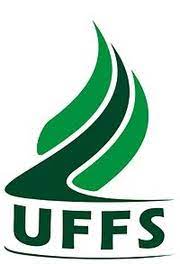
Rua Jacob Reinaldo Haupenthal, 1.580, São Pedro.
The Federal University of Fronteira Sul (UFFS) is a public, popular and quality higher education institution. Created by Law No. 12,029, of September 15, 2009, the UFFS covers more than 400 municipalities in the Mesoregion Grande Fronteira do Mercosur – Southwest of Paraná, West of Santa Catarina and Northwest of Rio Grande do Sul. Historically unassisted by the government, especially with regard to higher education, the mesoregion dreamed of a federal university for decades and UFFS has the greatest expression of how it is possible to develop public, free and quality higher education in an environment that recently had few prospects . The UFFS creation process started with five campuses: Chapecó (SC) – headquarters of the Institution, Realeza and Laranjeiras do Sul (PR) and Cerro Largo and Erechim (RS). Recently, the city of Passo Fundo also had a UFFS campus, which offers the first medical course in Brazil established through the Federal Government's medical school expansion program. UFFS, since its first selection process, favored the entry of students from public schools. Using the public school factor, indices of 10%, 20% or 30% applied to the National High School Examination (ENEM) score covered each year of high school attended in this school network. Now, with the new law for the reservation of vacancies in federal education institutions (Law nº 12.711/2012, Decree nº 7.824/2012 and Ordinance Normative MEC nº 18/2012), fully implemented in 2013 and which covers all undergraduate courses, in all supply shifts, UFFS is promoting yet another revolution in Brazil. By developing an admissions policy that respects and meets the current situation of public high schools in the states of Santa Catarina, Rio Grande do Sul and Paraná, With more than 50 undergraduate courses, the University has already surpassed the mark of 8 thousand students and completed, in 2022, thirteen years of history. The graduations offered privilege the vocations of the regional economy and are in line with the National Teacher Training Policy of the Ministry of Education (MEC). With the application of the new admission policy, most undergraduate students come from public schools in different parts of Brazil. This reaffirms UFFS's commitment to ensuring access to public, free and quality higher education for all, in addition to anticipating the achievement of fundamental goals for the country, for the population and for the school structure, doing justice to the trajectory of Brazilian students. , the economic profile of the families and the ethnic characterization of the population. By walking more and more towards equality and with the commitment to offer the opportunity to attend a high-quality graduation, completely free of charge, UFFS also offers scholarships and aid for students to dedicate themselves as much as possible to their studies and remain at the University until the end of end of course. The grants are aimed at the areas of teaching, research and extension, encouraging the development of various projects. The grants, on the other hand, favor the permanence of the academic at UFFS. In addition to graduation, UFFS offers opportunities in postgraduate courses at the level of specialization (lato sensu), master's and doctorate (stricto sensu). Currently, 40 specialization courses, 33 medical residencies, 16 master's degrees and 1 doctorate are offered, all with a faculty composed of masters and doctors. There are also many ongoing projects in the field of scientific research and in the extension area, which form, with teaching, the three pillars that support the activities developed by UFFS. This is reflected in the high standard of training of academics and certified by recent evaluations carried out by the Ministry of Education in the University's courses. If, on the one hand, students have a regular quality education, on the other hand, they can explore different skills through scientific research in different areas of knowledge and also strengthen the economy and development of the region where they are inserted, through projects that seek to the integration, interaction and inclusion between states, cities and the university.
School Director:
Population: 50000
Population of Teaching Staff: